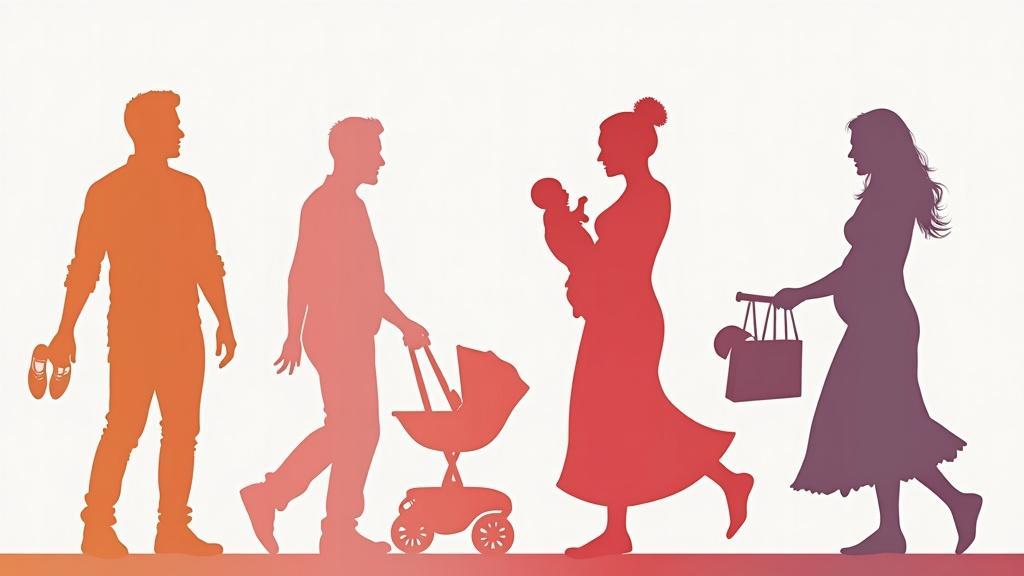Understanding a baby’s development is crucial for parents as it allows them to provide the best care for their child. Babies go through rapid growth and development in their first year, and being aware of these changes can help parents support their baby’s physical, cognitive, social, and emotional development. Additionally, understanding a baby’s development can also help parents establish healthy sleep patterns, introduce solid foods at the appropriate time, provide sensory stimulation, ensure health and safety, and encourage milestones. By having knowledge about their baby’s development, parents can create a nurturing and stimulating environment that promotes optimal growth and well-being.
Physical Development: Growth and Motor Skills
In the first year of life, babies experience significant physical growth. They typically double their birth weight by around 5 months and triple it by their first birthday. Their height also increases rapidly during this time. It is important for parents to monitor their baby’s growth by regularly visiting a pediatrician and ensuring they are meeting the expected growth milestones.
Along with growth, babies also develop various motor skills during their first year. These skills include rolling over, sitting up, crawling, and eventually walking. Rolling over usually occurs around 4-6 months, while sitting up without support is typically achieved by 6-8 months. Crawling usually begins around 8-10 months, and walking can occur anywhere between 9-18 months.
To support their baby’s physical development, parents can provide plenty of tummy time to strengthen the muscles needed for rolling over and crawling. They can also encourage sitting up by placing their baby in a seated position with support and gradually reducing the amount of support over time. Providing a safe and stimulating environment that allows for exploration and movement is essential for promoting healthy physical development.
Cognitive Development: Language and Learning
Babies begin learning language and communication skills from the moment they are born. They are born with the ability to recognize their mother’s voice and can distinguish between different sounds. As they grow, they start to babble and imitate sounds, eventually leading to their first words.
Parents can support their baby’s language development by talking to them frequently, using simple and repetitive language, and responding to their coos and babbles. Reading books and singing songs to babies also helps in developing their language skills. It is important for parents to create a language-rich environment that exposes their baby to a variety of words and sounds.
In addition to language development, babies also learn through play and exploration. They use their senses to explore objects and learn about cause and effect. Providing age-appropriate toys and activities that stimulate their senses, such as rattles, textured toys, and musical instruments, can enhance their cognitive development. Encouraging playtime and allowing babies to explore their surroundings in a safe environment promotes curiosity, problem-solving skills, and overall cognitive growth.
Social Development: Bonding and Interaction
Bonding with a baby is crucial for their social development. It creates a secure attachment between the baby and their caregiver, which forms the foundation for healthy relationships later in life. Bonding can be established through physical touch, eye contact, and responsive caregiving.
As babies grow, they start to develop social skills and learn how to interact with others. They begin to smile, laugh, and engage in social games like peek-a-boo. Parents can support their baby’s social development by providing opportunities for social interaction, such as playdates with other babies or joining parent-baby groups. Responding to their baby’s cues promptly and consistently helps build trust and strengthens the parent-child bond.
Emotional Development: Expressing and Understanding Feelings
Babies learn to express their emotions from an early age. They communicate their needs through crying, cooing, facial expressions, and body language. As they grow, they start to develop a wider range of emotions, including happiness, sadness, frustration, and fear.
Parents play a crucial role in helping babies understand and regulate their emotions. They can do this by responding to their baby’s needs promptly and providing comfort and reassurance. Creating a calm and nurturing environment helps babies feel secure and supported. As babies grow older, parents can also help them label their emotions and teach them healthy ways to express and manage their feelings.
Sleep Patterns: Establishing a Routine

Establishing a sleep routine is essential for a baby’s overall well-being. Babies need plenty of sleep to support their growth and development. In the first few months, babies sleep for shorter periods and wake up frequently for feeding. As they grow older, they start to develop more regular sleep patterns.
Parents can help their baby develop healthy sleep habits by establishing a consistent bedtime routine. This can include activities such as a warm bath, reading a book, or singing a lullaby. Creating a calm and soothing environment in the baby’s room, such as dimming the lights and using white noise machines, can also promote better sleep. It is important for parents to be patient and understanding during the sleep training process, as it may take time for babies to adjust to a new routine.
Feeding Habits: Introducing Solid Foods
Introducing solid foods is an important milestone in a baby’s development. It usually occurs around 6 months of age when babies start showing signs of readiness, such as sitting up with support and showing interest in food. It is recommended to introduce single-ingredient purees initially and gradually progress to mashed or soft foods.
Parents should consult with their pediatrician for guidance on when and how to introduce solid foods. They should also ensure that the baby is getting the proper nutrition by offering a variety of fruits, vegetables, grains, proteins, and dairy products. It is important to introduce new foods one at a time and watch for any signs of allergies or intolerances.
Sensory Stimulation: Toys and Activities
Sensory stimulation is crucial for a baby’s development as it helps them explore and make sense of the world around them. Babies use their senses of sight, hearing, touch, taste, and smell to learn about their environment. Providing age-appropriate toys and activities that stimulate their senses can enhance their cognitive, motor, and social development.
Parents can provide sensory stimulation through toys that have different textures, colors, and sounds. They can also engage in activities such as finger painting, water play, or playing with sensory bins filled with materials like rice or sand. It is important for parents to supervise these activities to ensure safety and prevent choking hazards.
Health and Safety: Vaccinations and Babyproofing
Vaccinations are essential for a baby’s health as they protect against serious diseases. It is important for parents to follow the recommended vaccination schedule provided by their pediatrician. Vaccinations not only protect the baby but also help prevent the spread of diseases in the community.
Babyproofing the home is another important aspect of ensuring a safe environment for a baby. This includes securing furniture to prevent tipping, covering electrical outlets, using safety gates on stairs, and keeping small objects out of reach. Regularly checking for potential hazards and making necessary adjustments as the baby grows is crucial for maintaining a safe environment.
Milestones: Sitting, Crawling, and Teething
Babies reach various milestones in their first year of life. These milestones include sitting up without support, crawling, pulling themselves up to stand, and eventually walking. Each baby develops at their own pace, so it is important for parents to be patient and not compare their baby’s progress to others.
Parents can encourage and support their baby’s development by providing opportunities for practice and exploration. For example, placing toys just out of reach can motivate a baby to crawl or pull themselves up. Offering support and encouragement during these milestones helps build their confidence and independence.
Parenting Tips: Encouraging Development and Bonding with Your Baby
To encourage their baby’s development, parents can:
1. Provide a nurturing and stimulating environment: Create a safe and engaging space for the baby to explore and play.
2. Talk and read to the baby: Engage in frequent conversations and read books to expose the baby to language.
3. Respond to the baby’s cues: Promptly attend to the baby’s needs and provide comfort and reassurance.
4. Encourage playtime: Offer age-appropriate toys and activities that promote exploration and learning.
To bond with their baby, parents can:
1. Engage in skin-to-skin contact: Hold the baby close, cuddle, and provide physical affection.
2. Spend quality time together: Engage in activities such as playing, singing, or going for walks.
3. Practice responsive caregiving: Be attentive and responsive to the baby’s needs, providing comfort and support.
4. Create routines: Establish consistent daily routines that provide predictability and security for the baby.
Providing the Best Care for Your Baby
Understanding a baby’s development is crucial for parents as it allows them to provide the best care for their child. By being aware of their baby’s physical, cognitive, social, emotional, and sensory development, parents can create a nurturing and stimulating environment that promotes optimal growth and well-being. Additionally, establishing healthy sleep patterns, introducing solid foods at the appropriate time, ensuring health and safety, encouraging milestones, and bonding with their baby are all important aspects of providing the best care. By being knowledgeable about their baby’s development, parents can support their child’s growth and create a strong foundation for their future development.



